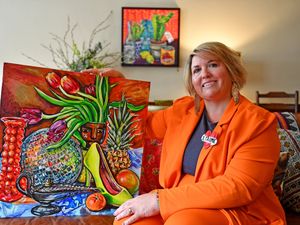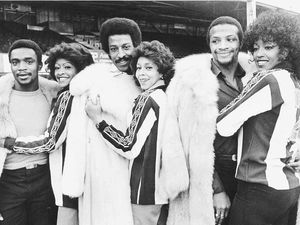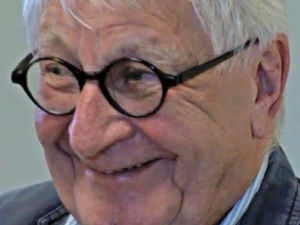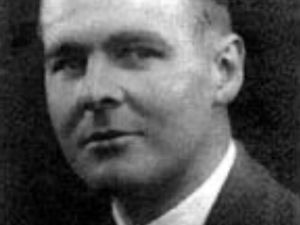"Dear 'King' George, Kindly get off my throne, you usurper you. Yours, King Anthony."
More jobs, great picnics at Windsor Castle, and real beer - the pledges of the Shropshire policeman who unsettled the Establishment with his claims to the royal throne
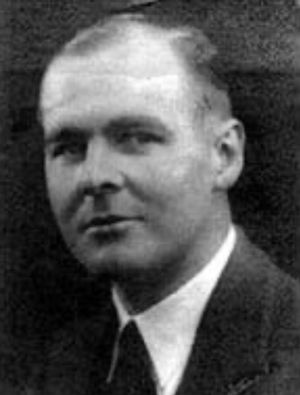
Former Shropshire police officer Anthony Hall didn't quite put it like that in his letter to the reigning monarch, but it wasn't far off.
The envelope was even embossed with the words: "By Royal Command."
King George V may or may not have been amused - at first. In any case, it quickly got beyond a joke. Records released in 2006 show that he thought it would look bad to send Hall to jail, and Buckingham Palace floated the idea of keeping him under observation for a while before putting him in an institution.
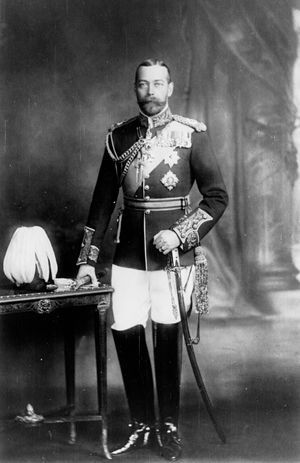
That suffered a decisive setback when two doctors examined Hall and inconveniently found no evidence of insanity.
Anthony Hall was a man who would be king and waged a long-running campaign to get what he felt was his rightful inheritance. He had served with Shropshire Constabulary for eight years, stationed at the headquarters at the Swan Hill police station in Shrewsbury.
At some stage he discovered his royal claim as an alleged direct male descendant of Henry VIII, and went around the country making speeches as part of his efforts to right a historical wrong, as he saw it.
For instance, in April 1931 he was addressing folk in Castle Square, Ludlow, just one of hundreds of speeches which drew crowds and controversy.
Those who know about such things said his claim had no validity, and that continues to be the case today. Nevertheless he got a lot of publicity and his activities unsettled the Establishment.
He had served in the Royal Army Medical Corps in the Great War before joining Shropshire police in which one account has it that he rose to the rank of Sergeant, but others claim he became the youngest Inspector in the force. He was a fingerprint expert, and claimed to have secured the first fingerprint conviction in Shropshire.
Clearly a man of some ability, Hall was said to be (we have to be a bit careful, all this might have come from his own mouth) a candidate for the post of Chief Constable of Coventry, and reached a shortlist of six out of 150 for the post of Chief Constable of Montgomeryshire.
He wrote various police textbooks during his service, including on fingerprints and vehicle laws. On leaving Shropshire Constabulary he lived in Canada for a time before returning to Britain at the end of 1930, living in Hereford.
"In Hereford the claim of Mr Hall, who is of independent means, seems to have aroused a great deal of indignation and some sympathy," a contemporary newspaper report read.
"He is about to launch out on a national campaign to recruit followers from among the working classes. He is known by everyone in Hereford as 'King Anthony'."
With his headquarters, appropriately enough, in Coronation Villas, in February 1931 Hall posted that letter to Buckingham Palace which ran to 11 foolscap pages.
It required King George V "in the name of the law to relinquish the Imperial Crown of this realm, and all the dignities, honours, pre-eminences, prerogatives, authorities, jurisdictions, lands and possessions to the same, annexed or belonging...
"You have no connection with the British royal family. You are an outsider..."
It did not go down well. Yet Hall had his supporters. Perhaps one reason was that he had an attractive manifesto. This included building a number of state hospitals - this was long before the National Health Service - creating a million new jobs within a year, better wireless programmes, and real beer.
The former lawman found himself on the wrong side of the law, repeatedly appearing in court, such as in July 1931 when Birmingham magistrates bound him over for using quarrelsome and scandalous language.
The prosecutor said that as long as Hall was at large he would continue "this scandalous campaign" about His Majesty and "quite clearly his conduct was likely to cause discontent in the minds of people and very probably lead to a breach of the peace."
In 1933 he moved to Finsbury Park, London, and his campaign continued unabated, with him addressing as many as five meetings a day and even printing his own currency. The 1936 abdication crisis came and went, and he still did not get the call.
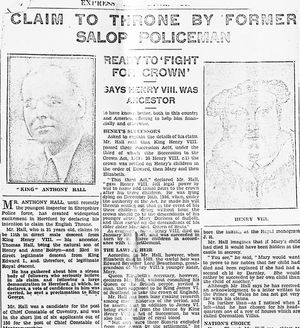
Naturally, the Press loved the story. To a reporter to whom he answered his door in February 1938 he said: "Yes, I am King Anthony of England. Come in, sit down, and I'll light a fire."
The reporter must have been impressed by his sincerity, writing: "If a man says he is King of England by right, one is tempted to dismiss him as a crank. But Anthony is no crank. He is a big, burly man with a voice hoarse from talking on Tower Hill or at the Woolwich Docks in advocacy of his claim."
Hall told the journo: "All titles since 1547 would have to come up for revision if I succeeded in this matter."
He added: "If I succeeded I should give great picnics in Windsor Castle. This campaign is making me poor and keeping me poor. I have my supporters. They're writing to their MPs. You see, I don't want a revolution or civil war. I'm a policeman."
Hall predicted success by 1940, but by then the country had other things on its mind and, having divorced in 1939 - he had married Shrewsbury's Ethel Brazier in the Atcham registration district in 1923 - he would have been a king without a queen.
As for the meat of the matter, it's a bit technical, but if you really want to know it went like this: He believed the tradition that James I of England and VI of Scotland was a changeling - that is, had been switched at birth with the real James and the imposter was a child of the Earl of Mar. Thus the Act of Settlement, establishing William Orange on the throne, was invalid, for William's claim was derived through his Stuart wife, Mary. If Mary was a Mar, the claim fell to the ground.
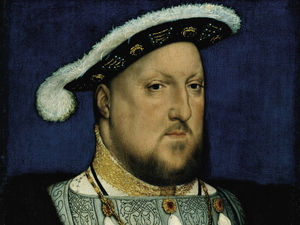
Hall said that Henry VIII had a child by Anne Boleyn before he had divorced Katherine of Aragon. This son, he believed, was brought up by a farmer named Hall in Sussex, and he could trace his own claim directly back to that lad, known as John Hall. Lastly, Hall maintained that illegitimacy was no barrier to inheritance.
During the Second World War Hall worked as a shell inspector at Rotherwas munitions factory in Herefordshire. He lived towards the end of his relatively short life in the village of Little Dewchurch, Herefordshire, where most villagers treated it all as a huge joke, albeit one which put the village on the map.
Still a commoner, he died there in December 1947 at the age of 49 and is buried in the village churchyard.

